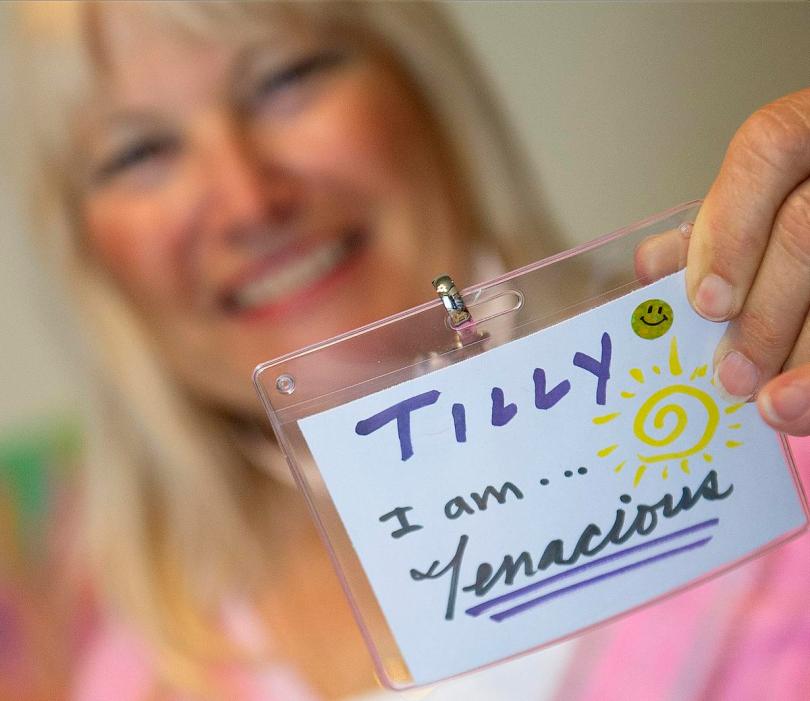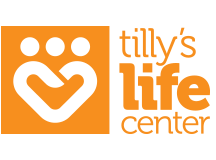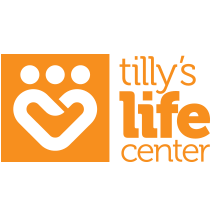
28 Oct OC Register – Changing Lives
For Tilly Levine, happiness and success are all about mindset. But is a positive mindset something that can be learned?
Yes, she says. And her Orange County nonprofit, Tilly’s Life Center, or TLC, is proving it – teaching kids across the county and the world that they are capable of anything, as long as they believe in themselves.
“Until I was about 12 years old, I was not a good kid,” the co-founder of Orange County-based retail clothing chain Tilly’s says. “Something had to change. I remember telling my mother one day that I wasn’t getting what I wanted and needed from the way I was behaving.”
That day, she changed everything.
“I decided to be positive,” Levine says. “I changed my mindset. I was like a brand-new kid.”
The difference in her life, she says, was black and white.
This new, positive mindset helped Levine throughout her career. When she and her then-husband immigrated to the United States from Israel in the late 1970s, they had $1,000 in their pockets and unlimited determination. Within a few years, they had gone from selling toys at swap meets to running a clothing chain with more than 225 stores in 33 states.
But clothing was never her passion. “It was an opportunity that we seized because we could create a better life for us and our children,” she says.
After a 2001 accident, a divorce and learning to run a company with her ex-husband, Levine realized that life was short. It was time to focus on what made her happy. She spent the next few years on a spiritual journey, realizing that one of her passions was helping children succeed.
But finding the right avenue took experimentation.
“For a number of years, we donated backpacks to schoolkids to help give them a head start for the school year,” Levine says. “But no matter how many backpacks we handed out, the lives of those kids didn’t change. We were not making a difference. I wanted to do something to solve the problems these kids were facing. Handing out backpacks didn’t solve anything.”
The birth of TLC
In 2012, Tilly’s clothing chain went public, and Levine took a smaller role in the business, freeing time to focus on her passion: helping teens change their mindsets.
After consulting with motivational heavy-hitters like author Louise Hay and building a comprehensive business plan, Tilly’s Life Center was born. Starting at the Boys & Girls Club of San Juan Capistrano, the program has grown and served more than 2,000 teens in six Orange County public school districts and one private high school.
Programs are offered as after-school classes or electives during the school day. The experiential courses, developed in coordination with Levine and program director Christine Carey, focus on the physical, social and emotional health of teens. Group projects, which include videos produced by participating kids, focus on social issues such as labeling people, date rape, decision-making, peer pressure and building compassion.
TLC currently focuses on two curricula, both of which include journaling, art and team-building. The I AM ME program emphasizes forgiveness, releasing anger, decision-making and overcoming fear. A second program, I AM HEALTHY, helps kids who have dealt with serious illness transition from a hospital environment to create new positive thought patterns. Both programs help kids tackle issues such as social media interaction, bullying, drugs and alcohol, self-reliance, responsibility and body image.
“TLC’s programs give teens more useful lifelong tools than just a backpack,” Levine says. “Kids need skills to understand that they do not have to be the victim of their circumstances. We help them build real self-esteem and internal change in a program that is fun and challenging.”
Helping teens in pain
The program is aimed at kids in crisis, which, TLC Director of Administration Monica Utley says, encompasses most teenagers.
“Whether the crisis is physical, social or emotional, (teens) can gain so much from our program,” Utley says. “In general, our target outcomes for kids are developing their executive functions; (helping them handle) stress; and building self esteem, resilience, and mindfulness.”
Isabella Haden, a graduate of Tilly’s Life Center, says the program really helped her. “I was diagnosed with osteosarcoma (bone cancer) when I was 11,” she says. “I was in the hospital for about a year. TLC taught me how to deal with people who didn’t understand what I went through and what I was still going through.”
The TLC program gave her the tools to understand that other people’s thoughts would not make her happy.
“I learned how to be happy, how to love myself and how to respect myself. Through all that, I have been nothing but successful,” she says.
Utley agrees.
“We truly believe that our curriculum helps teens move to a growth mindset, enabling them to effectively cope with crisis, adversity and tough decisions,” she says. “In turn, we believe they can ultimately find happiness and success.”
Funding TLC
The programs are offered free or at low cost to school districts that want them, Utley says.
“We do receive earned income from some organizations that have the funding. If a group cannot afford the program, we work to find sponsors or individual donors,” she says. “To be honest, funding is a challenge. We don’t want to turn anyone away. But currently the demand is greater than we can afford to fulfill.”
TLC is flexible, she says, even adapting the program for classes at Los Angeles’ Central Juvenile Hall. It hopes to soon raise the money to have a site of its own where classes can be offered to teens who do not have access to TLC’s programs through their school districts.
The nonprofit employs a full- and part-time administrative staff of five in a small Irvine office. Fifteen field staff employees facilitate and co-facilitate programs directly with students on school sites.
Taking the classes to a bigger audience
The success of Tilly’s Life Center has caught the attention of local universities.
This fall, the UCI School of Education is providing a university-level version of the TLC curriculum to 20 of its students. They will earn internship credits while working as co-facilitators in TLC programs across the county.
An added benefit is these trained student facilitators will help TLC reach its next goal: international outreach.
TLC just finished a pilot program in Levine’s native Israel. It was so successful that the nonprofit has received approval from Israel’s department of education to expand the program nationally.
“We are also in talks with Compassionate Pakistan, which just opened 100 schools in the country, to implement our program in their 20 high schools,” Utley says.
TLC hopes to use the trained college-age facilitators in these international locations.
Enacting change child by child
Measurement is a key factor in the nonprofit’s continued success. To make sure that the curriculum and graduates are achieving the nonprofit’s goals, TLC works with the UCI School of Medicine, which has developed standardized measures to evaluate the program and outcomes. The program’s effects on graduates also will be measured. Testing will quantify graduates’ self- esteem, ability to handle stress, self-worth, resilience and relationships with parents and family.
But when it comes to measuring the true success of the program, Levine insists that it is measured child by child.
“We can help a child be happy,” she says. “That is a gift.”
One of TLC’s graduates agrees.
“What I learned was to change my attitude,” says Ralph Rangel, who was diagnosed with testicular cancer at age 14 and secondary acute myeloid leukemia at age 19. “I learned that I was more than my two diagnoses. I also learned that as clouded as my life had been by cancer, I was still a human being and that the only reason I should be looking back was to see how far I had come.”


